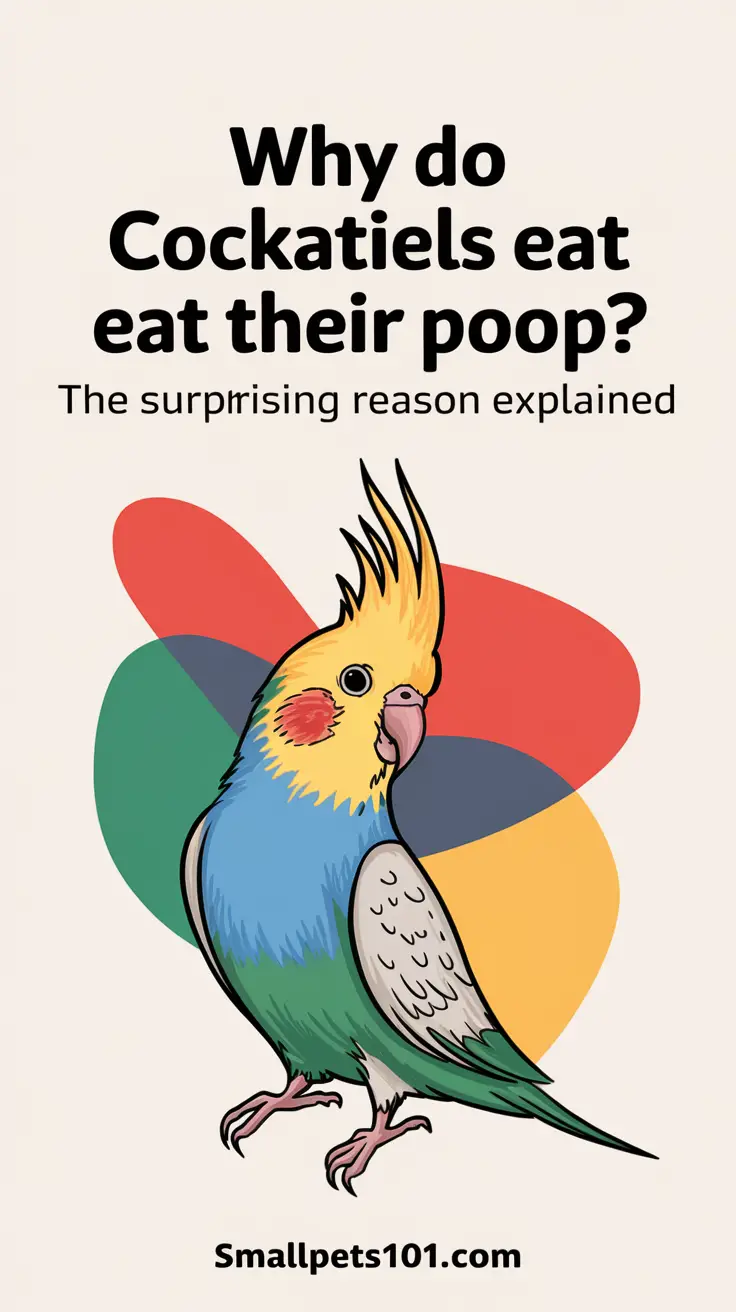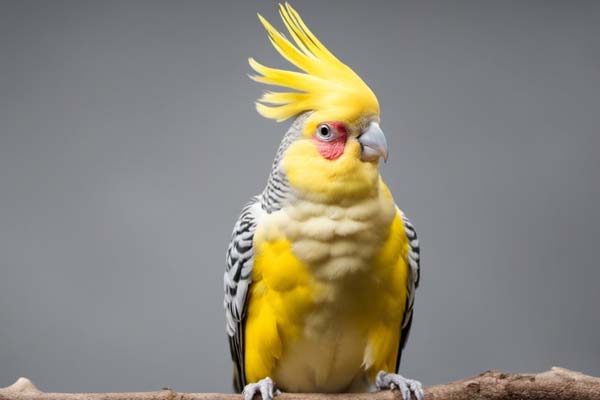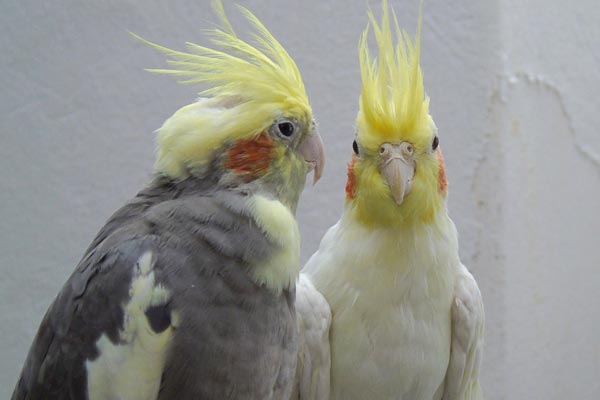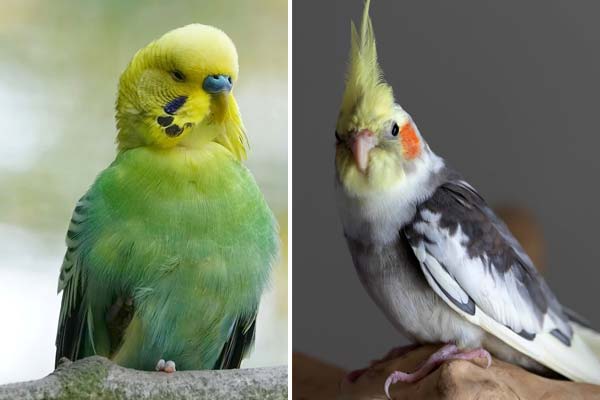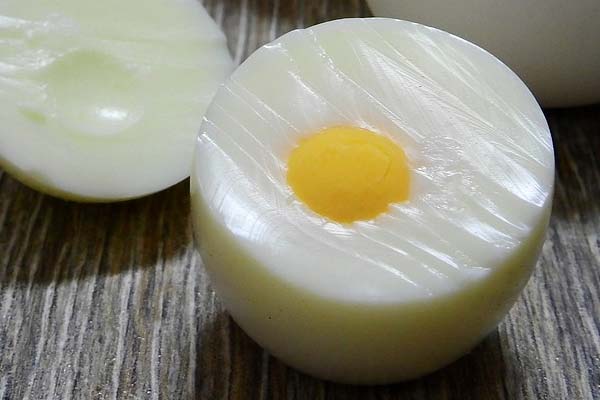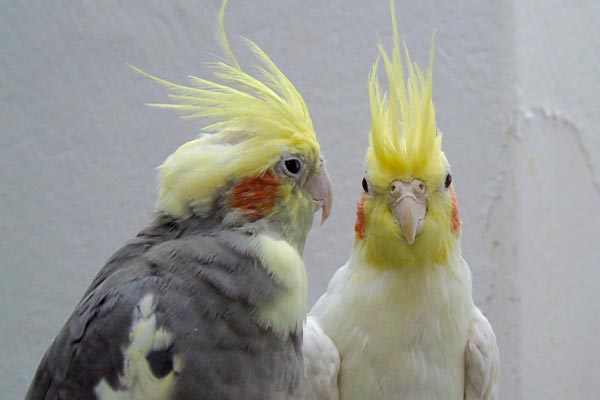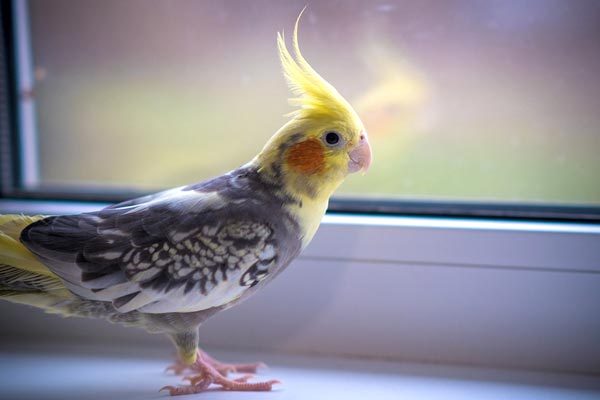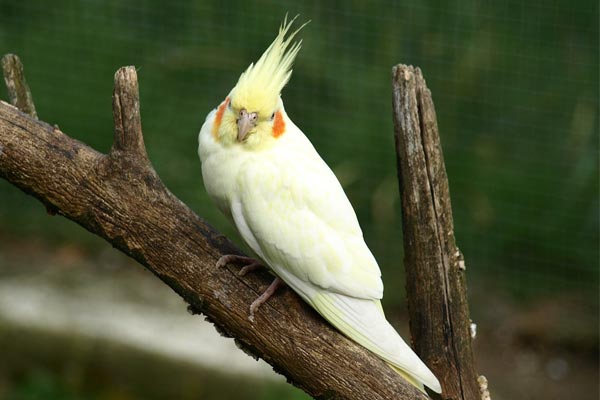Why Do Cockatiels Eat Their Poop? The Surprising Reason Explained
Cockatiels, beloved pet birds recognized for their friendly and affectionate demeanor, might occasionally display a less desirable habit: eating their poops.
This behavior, known as coprophagy, can be concerning for pet owners, but it is a relatively common occurrence among birds.
So why do cockatiels eat their poop? Several possible reasons include boredom, nutrient deficiencies, stress, and gut microbiome development. While coprophagy may seem unsanitary and unappetizing to humans, it can serve a purpose for birds.
Understanding Coprophagy in Cockatiels
Coprophagy, the consumption of feces, is a common natural behavior in various animal species, including cockatiels.
Although humans might find it unpleasant, this action actually serves a purpose within the bird’s digestive process.
Definition and Natural Occurrence
Like many other birds, Cockatiels have a unique digestive system that includes a two-part stomach: the proventriculus and the gizzard. The proventriculus secretes digestive enzymes, while the gizzard grinds and breaks down food particles.
Birds that consume plant material, such as cockatiels, have a short digestive tract that limits their ability to extract nutrients from their food. As a result, they may consume their feces to re-ingest undigested food particles and extract additional nutrients.
Differentiation from Regurgitation and Other Behaviors
It is crucial to differentiate coprophagy from other behaviors, such as regurgitation, a natural behavior observed in birds to feed their young or bond with their mate.
Regurgitation involves the bird bringing up partially digested food from its crop, while coprophagy consists of the consumption of feces.
Nutrients Contained in Bird Poop and Their Significance
Bird feces contain significant nutrients, including vitamins B and K, calcium, and protein. Cockatiels that engage in coprophagy may attempt to obtain these essential nutrients that were not fully extracted during their initial digestion.
However, excessive coprophagy may also indicate a potential health issue, such as a nutritional deficiency or underlying disease. Owners should monitor their cockatiel’s behavior and consult a veterinarian if they suspect health concerns.
Reasons Why Do Cockatiels Eat Their Poop
Cockatiels are known to engage in coprophagy, eating their feces. While it may seem like a strange behavior to humans, there are several reasons why cockatiels may engage in this behavior.
Nutritional Deficiencies
Cockatiels sometimes eat poop, mainly because their diet might lack essential nutrients. These birds need a balanced diet to stay healthy. When their food doesn’t provide all the necessary nutrients, they might try to get them from their poop.
Signs of nutritional deficiencies in cockatiels include feather plucking, weight loss, and lethargy. A well-balanced diet and supplementing with vitamins and minerals can help prevent coprophagy due to dietary deficiencies.
Boredom and Lack of Enrichment
Cockatiels are intelligent birds that need mental stimulation and activities to avoid boredom. When they get bored, they might start eating their droppings for amusement.
Offering toys, perches, and various enriching experiences can stop them from getting bored and lower the chance of them engaging in coprophagy.
Stress and Anxiety
Stress and anxiety can also lead to coprophagy in cockatiels. When they feel stressed or anxious, they may use coprophagy as a coping mechanism.
Signs of stress in cockatiels include feather plucking, aggression, and vocalization. Reducing stress triggers and providing a calm environment can help prevent coprophagy due to stress and anxiety.
Unclean Cage and Poop Conditions
An unclean cage and poor poop conditions can also lead to coprophagy in cockatiels. Cockatiels require a clean and hygienic environment to maintain their health and well-being. Regular cage cleaning and maintaining clean poop conditions can help prevent coprophagy from an unclean environment.
Other Uncommon Reasons
There are other uncommon reasons why cockatiels may engage in coprophagy. For example, they may eat their poop if it contains undigested seeds or if their poop has a strong odor. Identifying the cause of coprophagy and addressing it can help prevent this behavior.
Health Implications of Coprophagy
Cockatiels have a unique habit of eating their poop, which is known as coprophagy. While this behavior may seem unusual and even gross to humans, it is natural for many bird species.
However, excessive coprophagy can have potential health implications for cockatiels, and it is crucial to understand the digestive process and recognize signs of excessive coprophagy.
Understanding the Digestive Process
Cockatiels have a unique digestive system designed to extract as many nutrients as possible from their food. When they eat, the food passes through the crop and into the proventriculus, where it is mixed with digestive enzymes.
From there, it moves into the gizzard, where it is ground up and mixed with grit to aid digestion. Finally, the food passes into the small intestine, where nutrients are absorbed into the bloodstream.
Potential Health Concerns
While coprophagy is a natural behavior for cockatiels, excessive coprophagy can have potential health implications. One concern is the risk of bacterial and fungal infections, as the feces can contain harmful pathogens that can make the bird sick.
Additionally, excessive coprophagy can lead to nutrient deficiencies, as the bird cannot absorb all the nutrients from its food.
Recognizing Signs of Excessive Coprophagy
Identifying excessive coprophagy in cockatiels is crucial, as it might point to an underlying health problem. Watch for indicators like watery droppings, weight loss, lethargy, and reduced appetite.
If you spot any of these signs, seeking advice from a vet is vital. They can identify the root cause and create a proper treatment strategy.
Preventive Measures
Preventing cockatiels from eating their poop requires a combination of dietary, environmental, and behavioral interventions. Here are some measures that can help avoid coprophagia in cockatiels:
Providing a Well-Balanced Diet
Cockatiels sometimes eat poop due to lacking nutrients. Feed them a varied diet with vitamins, minerals, and proteins to stop this. Ask a vet for help. They’ll recommend the right food to keep your cockatiel healthy.
Offering Mental Stimulation and Enrichment
Another way to prevent coprophagia in cockatiels is by offering mental stimulation and enrichment. Implementing foraging opportunities is an excellent way to provide mental stimulation.
Foraging toys can be used to hide food, encouraging the bird to feed and play, thus reducing the likelihood of coprophagia.
Interacting with cockatiels through play and providing stimulating toys is essential for their mental enrichment. Toys that promote physical activity and mental engagement, like puzzle toys, help keep the birds occupied and decrease the chances of coprophagia.
Cleaning and Maintaining the Cage
Creating a consistent cleaning routine is vital to avoid coprophagia in cockatiels. A dirty cage can cause stress and illness, which might then trigger the behavior of coprophagia.
Proper hygiene practices, such as regularly cleaning food and water dishes, replacing bedding, and disinfecting the cage, can help maintain a clean and healthy environment for the bird.
Addressing Underlying Issues
Cockatiels may eat their droppings (coprophagia) due to health problems or stress. If this behavior continues despite diet and environment changes, consult a vet.
Stress triggers like loud noises or changes in surroundings can be resolved to prevent coprophagia. This creates a happier, healthier environment for the bird.
What to Do If Your Cockatiel Has Eaten Poop
If you catch your cockatiel eating its poop, it is crucial to take immediate action to prevent any potential health issues. Here are some steps you can take:
- Immediate Steps to Take After Coprophagy Occurrence
- Replace the dirty bedding and fully clean the cage using a disinfectant safe for pets. This stops bacteria and parasites from spreading.
- Provide your cockatiel with fresh food and water regularly. This supports their digestion by eliminating harmful bacteria or toxins in their system.
- Keep a close eye on your cockatiel’s behavior over the next few days. Contact an avian veterinarian immediately if you observe any alterations in their eating habits, energy levels, or bowel movements.
- Monitoring Your Cockatiel’s Behavior and Health
- Monitor your cockatiel’s droppings closely. Changes in color, texture, or frequency might indicate a health problem.
- Ensure your cockatiel gets a balanced diet that meets its nutritional needs. If it lacks specific vitamins or minerals, it may be more likely to engage in coprophagy.
- Give your cockatiel many activities to keep its mind and body busy and avoid boredom or stress. Eating droppings might mean there’s an issue with these things.
- Schedule check-ups with your avian veterinarian regularly to ensure your cockatiel is healthy and to catch any potential issues early on.
Remember, coprophagy is a natural behavior for many birds but can indicate health issues or nutritional deficiencies. By taking the appropriate steps and monitoring your cockatiel’s behavior and health, you can help prevent potential problems and ensure they live a happy and healthy life.
